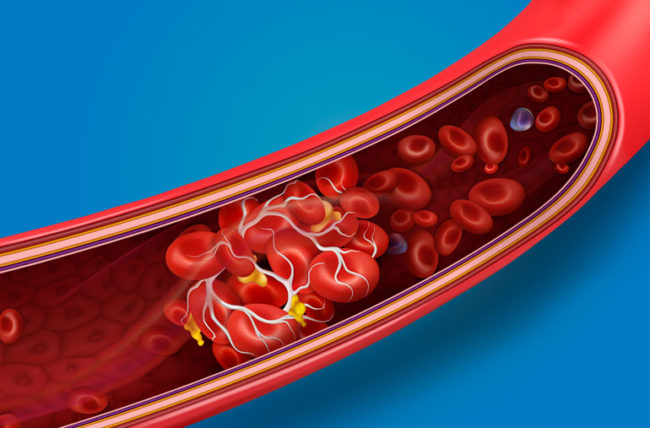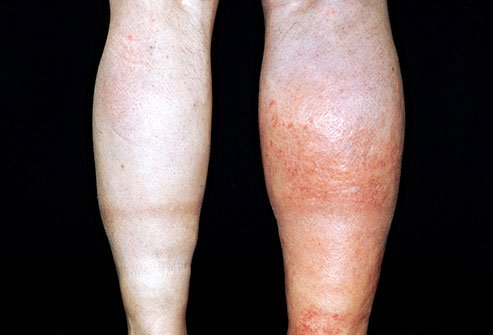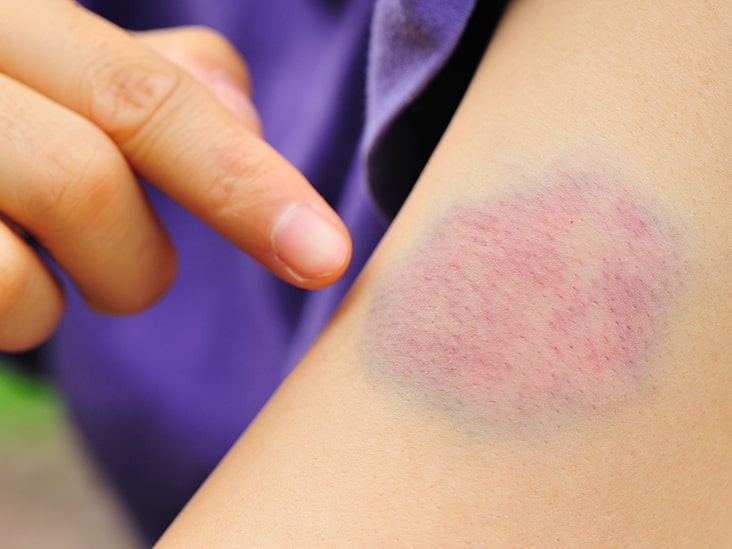According to experts, certain biological processes are very important for keeping the body healthy and for the good health of every system of the body. One of these is blood clotting which is also called coagulation.
When a person suffers from an injury, a blood clot is formed at that place so that the blood can be stopped from flowing. When the bleeding stops, it automatically breaks down naturally. This is a very simple process but in some cases it can be fatal.

EARLY INTERVENTION FOR BLOOD CLOT IS MUST
When blood clots in a person’s blood vessels, it affects the flow of oxygen to the heart and other parts of the body, leading to problems like heart attack or stroke. That is why experts believe that people should treat it in time and must consult their doctor.
It is also very important to find out when this problem is spreading its roots in the body and treat it at the initial stage before complications set in.
It is important to know the effects of blood clot on different parts of the body to carefully understand the impact and accordingly choose the line of treatment.
Clotting in hands and feet
When clotting occurs in the deep veins of our hands and feet, it is called Deep Vein Thrombosis. These clots are considered dangerous because they can easily get into our heart and lungs. If this condition is present inside your body then there may be
- Swelling
- Pain
- Tenderness
- Loss of sensation
- Redness in the affected area of the hand or foot.
Clot in the heart
Clotting usually does not occur in the heart, but it is not impossible. If there is a clot in the heart then there is a risk of heart attack. If there is clotting in the heart, then symptoms like
- Heaviness in the chest
- Dizziness
- Difficulty in breathing
- Short of breath on exertion
Clotting in the lungs
Clotting in the lungs begins with blood clots in the veins of the hands or feet. When this clot reaches the lungs, it is called pulmonary embolism. Such a person may have
- Chest pain
- Nervousness
- Coughing up blood
- Difficulty in breathing.
Clotting in the abdomen
Blood clotting sometimes also occurs in the intestines. This is due to liver problems or excessive use of birth control pills. In such a situation, a person may feel
- Abdominal pain
- Diarrhoea
- Blood in the stool
- Bloating

WHEN SHOULD A DOCTOR’S ADVICE BE TAKEN?
Sometimes it is difficult to understand the symptoms of blood clotting because they mimic symptoms of other health problems. In some circumstances, people do not even notice its symptoms. Sometimes, this problem is detected only after a complete diagnosis. If you are having symptoms of blood clotting, then you must consult your doctor because your cells start dying within 4 minutes of blockage in circulation. That is why such a situation sometimes proves fatal. We should consult our doctor as soon as possible in such cases of blood clots.
WHEN BLOOD CLOTTING CAN BE FATAL?
Whenever you get an injury or any kind of cut, the skin starts bleeding. During this, blood clotting is considered good because it helps to prevent excessive bleeding due to clotting. The cells and proteins present in the blood gather to form clots so that bleeding can be stopped. But if this blood clot does not dissolve on its own or if it starts forming in any organ or veins inside the body, then it can also prove to be fatal.
RECOGNIZE THE SIGNS OF A BLOOD CLOT
It is very important to recognize these signs of a blood clot so that it can be treated early and prevent it from becoming life-threatening.
- A heart attack can occur if a blood clot gets lodged in the artery.
- If there is ever a problem of the clot in the lungs then it is called Pulmonary Embolism.
- If a blood clot starts forming in any vein of the body then it is called Deep Vein Thrombosis (DVT).
Blood clots can be fatal, but recognize the symptoms in time, and you can survive.
- Swelling in any part of the body- When the flow of blood stops due to a clot in any vein or blood vessel of the body, then that part of the body starts swelling (Swelling). If there is swelling in the lower part of the foot, then it is a sign of DVT. Even after the problem of a blood clot is cured, 1 out of every 3 people continues with the problem of swelling and pain.
- Change in the color of the skin- If there is a blood clot in any vein of the hand or leg, then the color of the skin of that part becomes red or blue (Skin red or blue). Sometimes, the color of the skin also changes due to damage to the blood vessels. Apart from this, if there is a blood clot in the lungs, then due to this your skin can also turn blue.
- Feeling of severe pain- If someone suddenly starts having severe chest pain, then it can be a sign that a heart attack has occurred due to a clot in the artery or the problem of a clot in the lungs has increased. is. Apart from this, pain can also be felt in the arms, legs, or stomach due to the clotting of blood.
- Difficulty in breathing- This is a serious symptom that indicates a blood clot in the lungs or in the heart. Along with breathing trouble, there may also be excessive sweating or the heartbeat may also increase. These symptoms include-
- Shortness of breath
- Chest pain
- Pain in different organs/feeling of pain on pressing the limbs or swelling in the limbs
- If there are red spots on any part of the body other than the injection site (where the injection was given)
- Persistent abdominal pain with or without vomiting
- Persistent headache with or without vomiting
- Weakness in any part of the body or in any part of the body (including the face)
- Persistent vomiting for no apparent reason
- Blurred vision or eye pain or double vision
- Mental status changes or confusion or depression
- Any other symptom or health condition that is of concern to the vaccine recipient or his family.

ASSOCIATED CONDITION IN CASE OF CLOTTING: THROMBOEMBOLISM
Thromboembolic is a condition in which a blood clot forms inside a vein somewhere in the body. Thromboembolic mostly occurs in the lower leg or thigh, although it can sometimes occur in other parts of the body as well.
So, if you are resonating with any signs and symptoms of a blood clot. Consult your doctor to get the right diagnosis. Early intervention is the key to cure and the right treatment. Blood clots will give you some signs and symptoms in the initial stages which should not be neglected or overlooked.
Taking precautions beforehand can help in avoiding complications that may occur due to blood clots. Remember, there are no warning signs for blood clots causing heat stroke which can be sudden.
Carrying out routine health checkups appropriately and timely can help in ruling out any kind of blood clot complications and keep you healthy for a better future and life.
If you or anyone you know is suffering from blood clotting disorder, call us on (469) 545-9983 to book an appointment with our specialists today.
